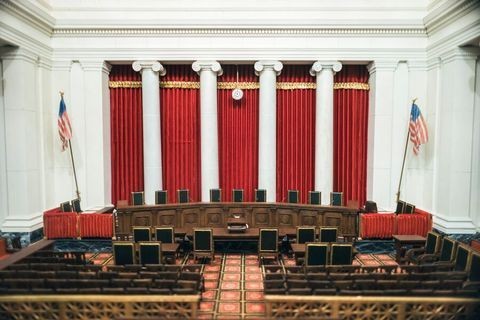Insurers’ COVID-19 Notepad: What You Need to Know Now - Week of January 10, 2022
Client Alert | 4 min read | 01.11.22
Courts Dismiss COVID-19 Business Interruption Claims
On January 4, 2022, the Court of Appeals of Indiana affirmed an Indiana trial court’s decision denying a theatre’s motion for partial summary judgment and granting partial summary judgment for Cincinnati Casualty Company. The court found that loss of use of the theater was not enough to fulfill the “physical loss or damage” requirement under the policy. Order at 13. In distinguishing the facts from the cases the theatre relied on, it noted those policies included protection from “‘risk of’ loss.” Id. at 12–13. Without the “risk of” language, the court held the theatre needed to show the property was “destroyed or altered in a physical way that would require restoration or relocation.” Id. at 13, 15. The case is Indiana Repertory Theatre v. Cincinnati Casualty Co.
On January 5, 2022, the U.S. Court of Appeals for the Fifth Circuit affirmed the district court’s decision granting judgment on the pleadings in favor of State Automobile Mutual Insurance Company in a COVID-19 lawsuit brought by barbecue restaurants. The court ruled under Texas law that claimed losses due to the suspension of dine-in services during the COVID-19 pandemic are not covered as a direct physical loss of or damage to property. Order at 2. The court held that the business income and extra expense coverage requiring a physical loss of property means a tangible alteration or deprivation of property. Id. at 8. As the court stated, “[i]n interpreting a ‘physical loss of property’ to require a tangible alteration or deprivation of property, we join several other jurisdictions, including the Second, Sixth, Seventh, Eighth, Ninth, Tenth, and Eleventh Circuits.” Id. at 9. The case is Terry Black’s Barbecue, L.L.C. v. State Automobile Mutual Insurance Co.
On January 6, 2022, the U.S. Court of Appeals for the Fifth Circuit affirmed the district court’s decision granting Continental Casualty Company’s motion to dismiss a tea and spice store owner’s COVID-19 business interruption claim. Following its new decision in Terry Black’s Barbecue, the court held the plaintiff failed to plead any direct physical loss of property. Order at 3-5. The case is Aggie Invs., L.L.C. v. Continental Cas. Co.
On January 6, 2022, the district court for the Western District of Kentucky granted Great Northern Insurance Company’s motion to dismiss a publishing company’s COVID-19 business interruption claim. Noting that “[c]ourts (especially appellate courts) across the country have repeatedly dismissed similar cases raising similar claims under similar policies,” the court held that the plaintiff failed to plead any direct physical loss or damage to property. Order at 2, 4. The case is Schroeder Publishing Co., Inc. v. Great Northern Ins. Co.
On December 29, 2021, the district court for the Eastern District of New York granted American Zurich Insurance Company’s motion to dismiss a fitness center’s COVID-19 business interruption putative class action claim. The court concluded that the policy’s Business Income and Extra Expense provisions “make clear that the Policy unambiguously requires real, tangible damage to or loss of the property to trigger Business Income and Extra Expense Coverage,” and the plaintiffs’ claim failed because they did not allege such harm occurred. Order at 12. The court further held that the policy’s virus exclusion barred coverage. Id. at 13. The case is KBH Sports Club, LLC, et al. v. Am. Zurich Ins. Co.
New Business Interruption Suits Against Insurers:
On January 3, 2022, several dental clinics sued Bankers Insurance Company for damages due to their business income losses from the COVID-19 pandemic. The clinics sued for declaratory relief, breach of contract, failure to timely pay claims and initiate loss adjustment, and breach of duty of good faith and fair dealing. The clinics alleged they purchased all-risk commercial property insurance policies with business income coverage. Complaint ¶¶ 9–17. After submitting their claim, the plaintiffs allege that the insurer wrongfully denied their claims and refused to indemnify their losses. Id. ¶ 61. They claim damages because they allege the coronavirus was present at their clinics, which forced them to close their businesses and limit services. Id. ¶ 62. The case is Exceptional Dental of Louisiana LLC v. Bankers Insurance Co.
Contacts
Insights
Client Alert | 6 min read | 02.27.26
The U.S. Supreme Court’s February 20, 2026, opinion in Learning Resources. v. Trump (decided with Trump v. V.O.S. Selections), holding that the President lacks authority to impose tariffs under the International Emergency Economic Powers Act (IEEPA), is notable for many reasons — including its practical impact on the many U.S. companies who paid steep tariffs on global imports and may now be able to recover by filing suit before the Court of International Trade (CIT). That possibility and the key reasons for the High Court’s decision are discussed in our recent alert on this momentous decision.
Client Alert | 4 min read | 02.27.26
New Jersey Expands FLA Protections Effective July 2026: What Employers Need to Know
Client Alert | 3 min read | 02.26.26
Client Alert | 4 min read | 02.26.26




